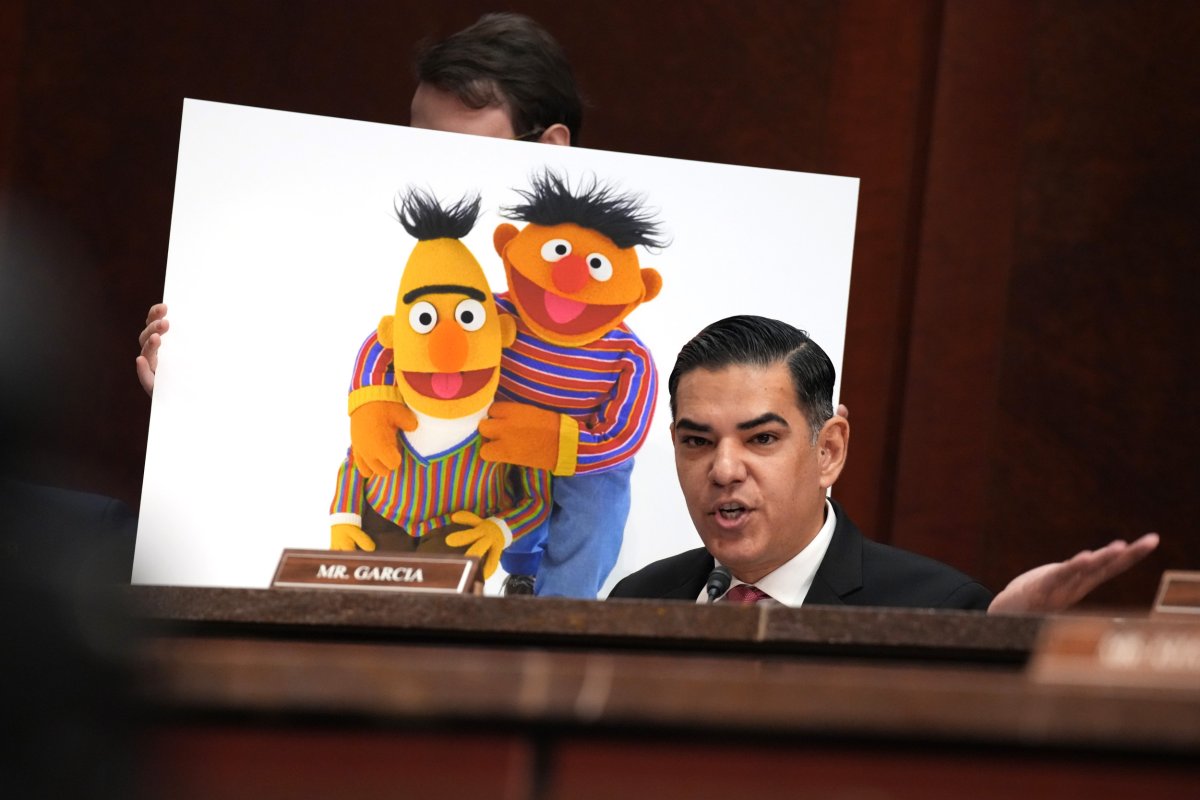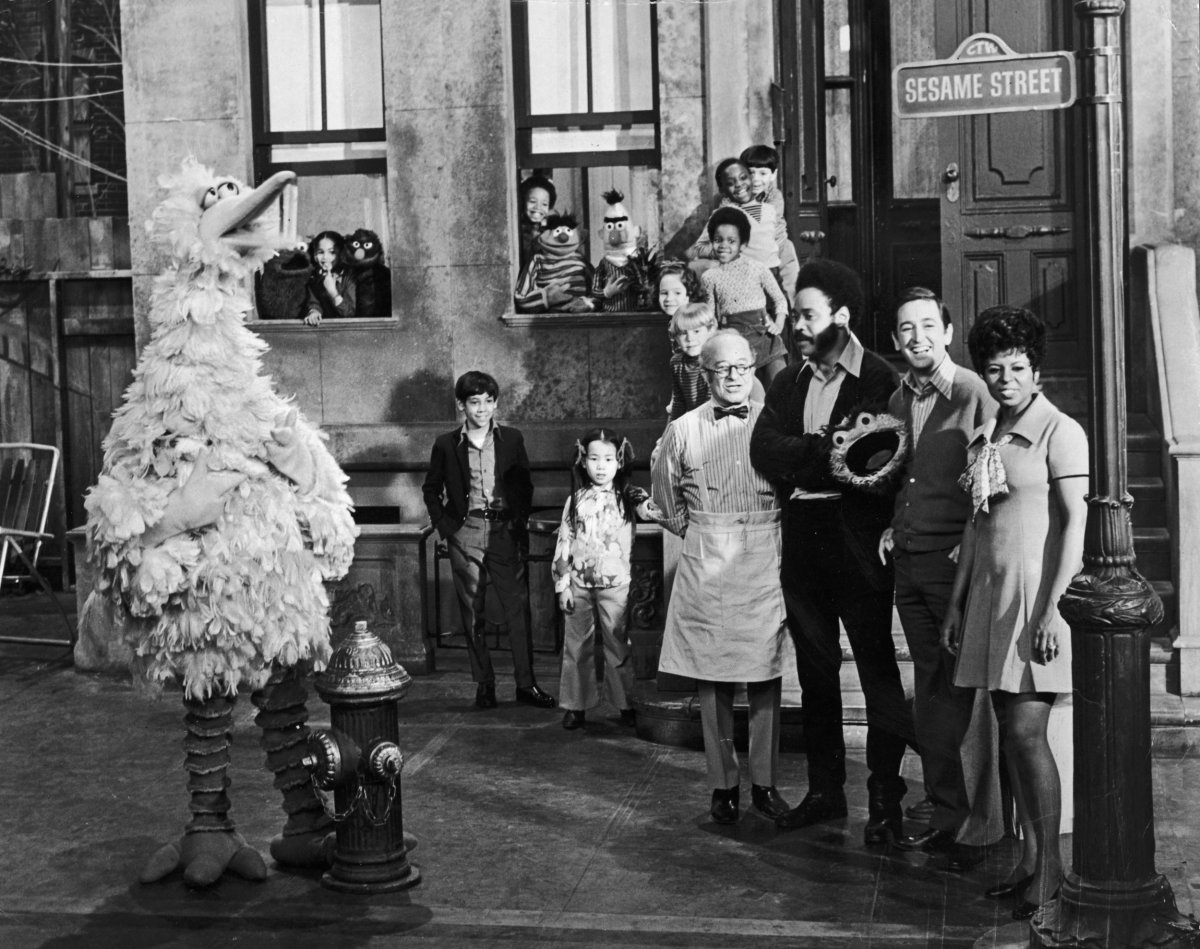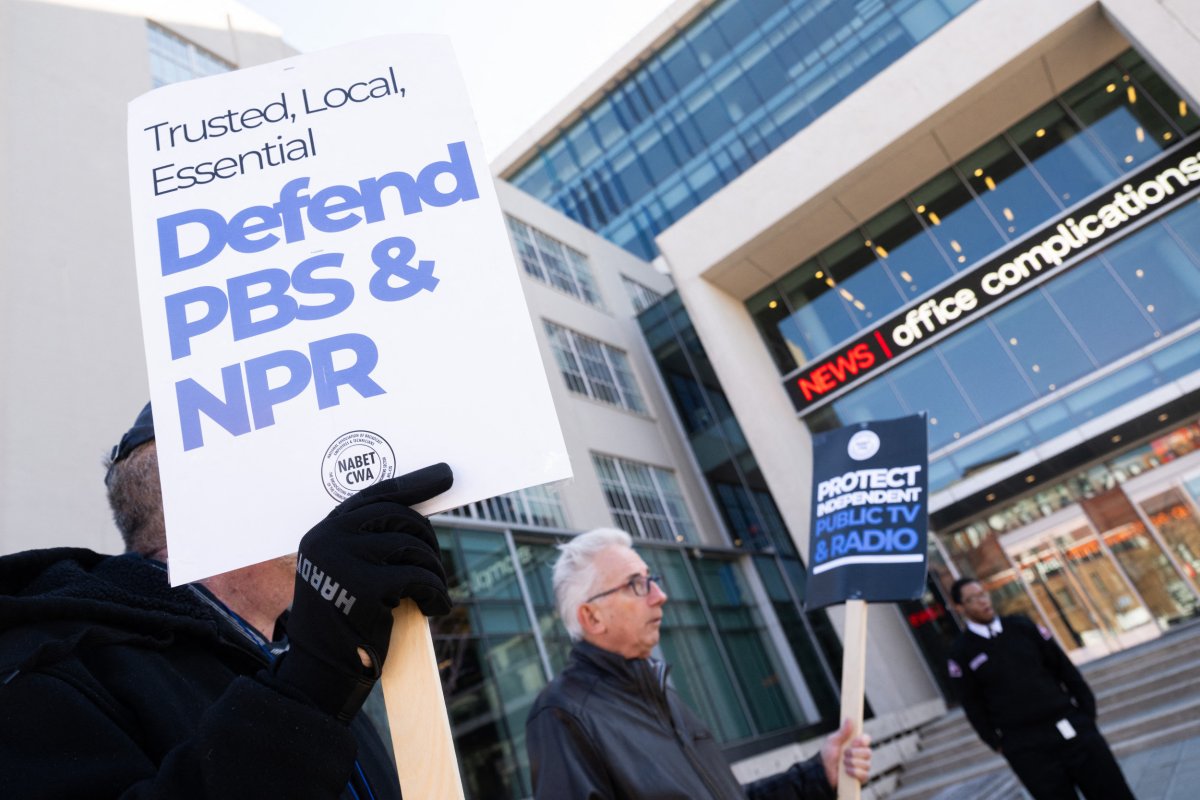There was a time when American parents felt no hesitation about plopping their kids in front of the television on a Saturday morning.
For decades, shows like "Sesame Street" were, in addition to being often the only thing available, considered safe havens—wholesome, educational programming that helped children learn the alphabet, basic math and even lessons about morality and what it meant to be a kid.
But today, not even Elmo is safe from the nation's culture wars or the rapidly shifting dynamics of the media business.
Funding Pressure

"Sesame Street" is one of the longest-running shows on TV, having premiered during the Nixon administration in 1969. The program's structure is complicated. It is produced by Sesame Workshop, a nonprofit that collaborates with the Public Broadcasting Service (PBS), which has distributed "Sesame Street" to its member stations for decades, and the Corporation for Public Broadcasting (CBP), which helps fund PBS along with its sister organization National Public Radio (NPR).
And the federal government spends less than $5 million a year directly on grant money that goes to "Sesame Street," the program remains in the eyes of Americans indelibly attached to public-acess television. Overseas, where foreign versions of the show have received funding from U.S.A.I.D. — explicitly called out as government waste by President Trump during his address to Congress early this month — "Sesame Street" has been seen as a particularly effective tool on fostering positive attitudes toward the West.
That deep connection with "Sesame Street" was on full display last week during a House subcommittee hearing, where Republican lawmakers hauled in the leadership of PBS and NPR to argue that the publicly funded institutions promote progressive ideology at taxpayers' expense. While Republicans mostly focused on their issues with NPR and PBS as taxpayer-funded entities, Democrats on the dais used "Sesame Street" props as a stand-in for public media, even though PBS does not directly fund the show.
Representative Marjorie Taylor Greene, the Georgia Republican who chaired the hearing, labeled PBS and NPR "radical, left-wing echo chambers for a narrow audience of mostly wealthy, white urban liberals," accusing them of "grooming and sexualizing" children.

"For far too long, federal taxpayers have been asked to fund biased news," Greene said during the hearing. "This needs to end, and it needs to end now."
The hearing, formally titled "Anti-American Airwaves: Holding the Heads of NPR and PBS Accountable," saw PBS CEO Paula Kerger and NPR CEO Katherine Maher grilled over programming choices.
The hearing took a surreal turn when Democratic representatives mocked the GOP's rhetoric. "Are Bert and Ernie part of an extreme homosexual agenda?" asked Rep. Robert Garcia, a California Democrat, referring to the longtime "roommates" who live on "Sesame Street."
In one of the few moments of levity, Kerger, laughing, replied, "No." Garcia then followed up: "Are you sure, Ms. Kerger? Because he's obviously red," referring to Elmo.
"Well, he is a puppet but no," she answered.
Big Bird Is Drafted for the Culture Wars
Over the first weeks of the second Trump administration, not only "Sesame Street" but public media more broadly has become a cultural battleground for conflicting visions of childhood, education and family values.
The attacks from GOP lawmakers on NPR and PBS are part of a wider movement targeting textbooks, children's books and teachers, all under the banner of protecting kids from perceived liberal overreach. Across red states, school boards have in recent years banned children's books featuring LGBTQ characters, historical narratives on racism and even picture books deemed by certain politicians, parents and activists as too "woke."
Longstanding fictional characters have come under the cultural microscope, too. In 2018, Bert and Ernie were accused by a Colorado Republican of being part of a gay plot to influence children. Three years later, Hasbro attempted a rebranding of Mr. Potato Head to a gender-neutral "Potato Head," to reverse course after an outcry. A week later, Dr. Seuss Enterprises pulled six books from circulation over racist imagery. Critics accused the publisher of caving to "wokeism."
And while the majority of funding for "Sesame Street" comes from licensing, merchandise and distribution deals, its puppets have long been a staple of PBS programming—making the program an ipso facto target of conservative attempts to defund public broadcasting, with Democrats eager to paint the party as "anti-Big Bird."
But the future of Elmo, Cookie Monster and Big Bird isn't just being shaped by politics—it's also being transformed by algorithms.
Competing in the Attention Economy
Today's kids just aren't sitting on the couch watching PBS the way past generations did. Even children in low-income households, for whom "Sesame Street" was originally targeted, are more likely to be swiping through YouTube, Instagram and TikTok, where recommendation algorithms tailor content in real time, based on attention-grabbing tactics rather than educational merit.
According to a 2023 report from the Center for Humane Technology, children aged 8 to 12 spend an average of over five hours a day on screens, with YouTube and TikTok ranking as the most-used platforms. The same report found that 68 percent of parents are concerned their children are being "exposed to harmful content via automated recommendations."

"Millennials got a little bit more of the Wild West of the internet," said Jason Dorsey, a generational researcher, in a February interview with Newsweek. "Now, those same Millennials are frequently becoming parents and trying to figure out, knowing all we know, how do we think about digital technology with our kids?"
With the technological change also comes an existential business challenge. Sesame Workshop is reeling from the loss of a decade-old $30–35 million licensing deal with HBO. The termination, coming at a time of belt-tightening for Hollywood and the larger media landscape, forced the Workshop to lay off nearly 100 employees recently and draw from its investment reserves to cover a projected $40 million budget shortfall, according to the New York Times.
Sesame Workshop is now in negotiations with platforms including Netflix, YouTube and Amazon Prime Video to license its iconic programming. To stay competitive, it's also reformatting "Sesame Street" for the streaming era. The 56th season, which goes into production in the coming weeks, will abandon its longtime magazine-style layout in favor of three tight segments: two 11-minute narratives bookending an animated feature, each optimized for attention spans shaped by short-form video.
Raising Kids for a Modern World
The turmoil surrounding "Sesame Street" is reflective of broader changes in the culture that have chipped away at the once-nostalgic trust in institutions like PBS. The decline of traditional media is not only reshaping political discourse but also underscoring how much harder it's become to raise children in the modern world.
The Netflix hit series Adolescence has captured global attention by dramatizing that very challenge. The British miniseries premiered to widespread acclaim this month, with its harrowing story about a 13-year-old boy accused of murdering a female classmate after being radicalized online by "inceldom" and misogyny. Parents have latched onto the story as a mirror of their own worst fears.

"We wanted to look at how boys especially are targeted by radical content," co-creator Jack Thorne told CNN. "We kept hearing from parents who were shocked at what their kids were watching, what they were being recommended and how quickly it spiraled."
Now, as Millennials become the biggest cohort of parents in America, they're facing the unique challenge of learning how to protect their children from conflating social media with real life. Lawmakers have tried to get ahead of those dangers but simply cannot keep up with the speed of technological change.
In the end, the future of "Sesame Street" appears to be in the hands of the multi-billion-dollar streamers and tech platforms that now control so much of American culture, determining what shapes childhood just as Kermit, Elmo and the rest once did.
fairness meter
About the writer
Jesus is a Newsweek reporter based in New York. Originally from Bogotá, Colombia, his focus is reporting on politics, current ... Read more




